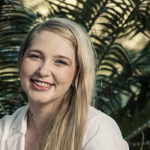
Without treatment multiple sclerosis (MS) is commonly a disabling disease. Alemtuzumab (Lemtrada®) is a proven and approved therapy for MS which is highly effective but is associated with a 30-40% risk of developing other autoimmune diseases after treatment has been administered. Alemtuzumab is a therapeutic antibody that works in MS by temporarily removing circulating immune cells. Following alemtuzumab treatment, one type of immune cell, called B cells, is restored in the blood earlier than other immune cells. Normally, B cells are controlled by another immune cell called T cells. When B cells return after alemtuzumab treatment without the controlling effect of T cells, this is thought to contribute to the risk of developing another autoimmune disease (autoimmunity).
It has been suggested that another monoclonal antibody which targets B cells, called rituximab, might be effective in preventing autoimmunity after alemtuzumab. An early phase clinical study has suggested that adding treatment with rituximab at key time points during alemtuzumab treatment dramatically reduces the risk of developing autoimmunity.
The aim of this clinical trial is to determine if this therapeutic approach reduces the risk of autoimmunity following treatment of MS with alemtuzumab. Dramatically reducing or removing this risk would make treatment with alemtuzumab more appealing to both people with MS and their MS care team. The alemtuzumab treatment regime of two separate courses administered a year apart makes issues such as family planning and infusion time commitments much simpler with alemtuzumab, when compared to some other MS therapies. It would also become one of the most cost-effective therapies for MS as only two brief courses of treatment are required for the majority of patients.
The RAMBLE clinical trial has now begun at multiple sites in Queensland to address the complications of alemtuzumab treatment for MS. The trial has received regulatory approval and ethics approval, with amendments also approved. Four trial sites in Queensland, including Gold Coast, Royal Brisbane, Mater Brisbane, and Townsville, have obtained site-specific approvals. However, two sites did not proceed, with people living with MS from Princess Alexandra Hospital being enrolled through the Mater site.
Screening has begun at three sites, and enrolment has taken place at two sites. So far, nine participants have been screened, and seven have been enrolled, although the anticipated total is 80 participants. The trial has not experienced any serious adverse events thus far.
The treatment approach in the trial involves administering small doses of rituximab to slow down the re-emergence of white blood cells that produce antibodies, thereby reducing the complications associated with alemtuzumab treatment for MS. The preliminary findings indicate that this is safe and well tolerated and are currently under review for publication. The trial aims to improve the management of autoimmune disease complications related to alemtuzumab treatment in people living with MS.
Updated: 31 March 2023
Updated: 14 February, 2022

Laboratory research that investigates scientific theories behind the possible causes, disease progression, ways to diagnose and better treat MS.

Research that builds on fundamental scientific research to develop new therapies, medical procedures or diagnostics and advances it closer to the clinic.

Clinical research is the culmination of fundamental and translational research turning those research discoveries into treatments and interventions for people with MS.

